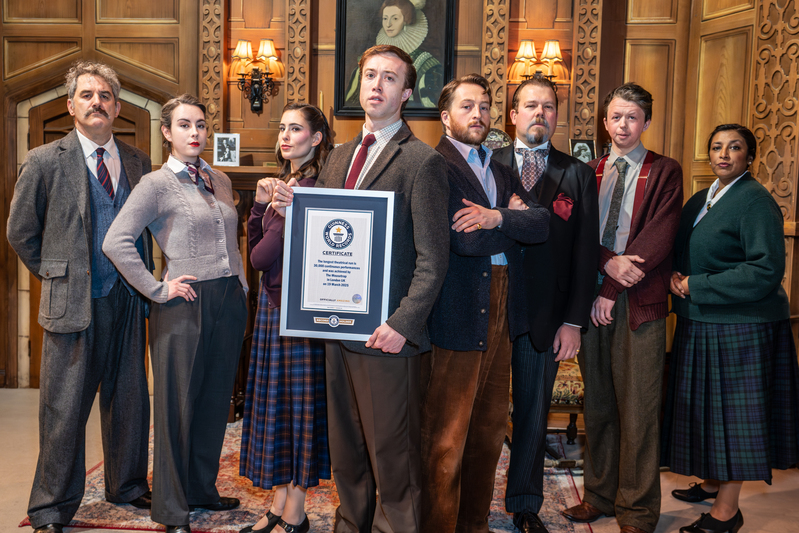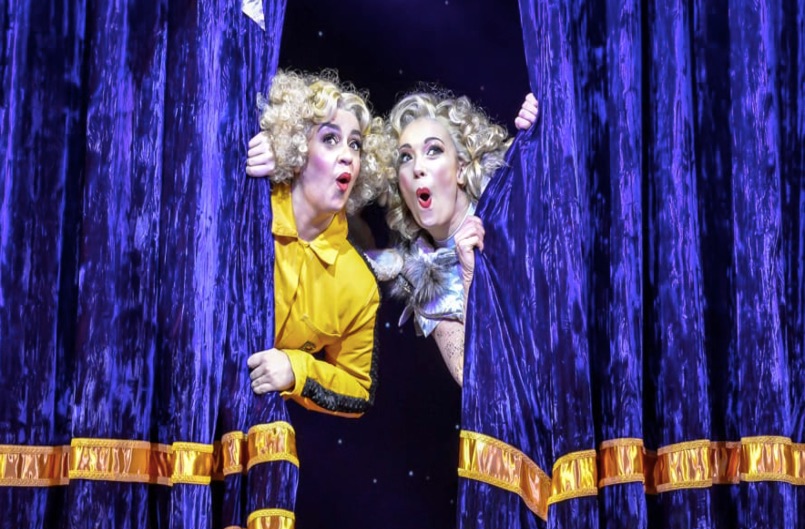If she’s pregnant she will be spared the noose and her sentence will be reduced to transportation to the colonies. The women, led by Maxine Peak as midwife Elizabeth Luke, must decide.
And Kirkwood ensures we benefit from every scrap of research she’s accumulated. First we watch all 12 of them being sworn in, one by one, each giving a little bit of background information. Then they’re locked in a chamber without refreshment, warmth or light and given an hour to reach a conclusion about the murderess’ condition. Not easy as any pregnancy would be in the very early stages.
For the first half they argue and compare stories revealing how tough a woman’s life was back then. Their many, many experiences are fascinating but I must confess I struggled to stay engaged because although costume & set designer Bunny Christie has done an excellent job of trying to differentiate each woman, they’re all dressed in pretty much the same colours against similarly coloured walls. One squabble and revelation of hardship seems to blend in with the next. There’s a lot of shouting. The back stories of any 12 characters, in the same predicament, whether male or female is a lot to take in. it doesn’t help that Ria Zmitrowicz as the accused has a Norfolk accent that’s so thick it’s often hard to make out what she’s saying/yelling.
After the interval and a surprise upset to the state of the chamber there’s a lot more squabbling but many of the characters do start to come into clearer focus thanks to some rather melodramatic plot twists and revelations; notably Haydn Gwynne as the women’s spokesperson.
The midwife is increasingly antagonised by the other women's reluctance to accept her professional opinion as they opt to call in a man instead. He arrives in the elegant shape of Doctor Willis (Laurence Ubong Williams) who proceeds to inadvertently patronise the women with his gynaecological “expertise”.
Finally his testimony persuades everyone to come to the same conclusion. During the process we learn a lot of the horrors of child birth in a society in which women are treated with little more respect than that afforded to dogs. Indeed there’s a vivid speech making that comparison. It’s just one of a number of set piece monologues in the script that will be extracted and performed by female drama students for decades to come.
I really admired Kirkwood’s bravery in making the condemned woman so unlikable. Of course with our modern sensibilities we know she needs psychological help not punishment, but she really is vile. This isn’t a story about fighting an injustice, although along the way we hear of plenty of examples of the law mistreating innocent women.
It was exciting to have a stage full of female protagonists for once but arguably any 13 central characters are too many to engage with on one viewing.
Perhaps a seeing it a second time would be more rewarding. The trouble is, although I admired the play and director James Macdonald’s production, I didn’t feel sufficiently enthused to want to see it again.
Cinema audiences all over the world can see a broadcast of THE WELKIN on 21st May.

 What a fascinating time playwright Lucy Kirkwood must have had researching this play which supposes that in 1759 12 housewives have been brought together to consider the fate of a deranged young woman who is convicted of killing a child.
What a fascinating time playwright Lucy Kirkwood must have had researching this play which supposes that in 1759 12 housewives have been brought together to consider the fate of a deranged young woman who is convicted of killing a child.



 Hit company Mischief Theatre put their comedic sorcery to the test in Magic Goes Wrong, their latest addition to the London stage.
Hit company Mischief Theatre put their comedic sorcery to the test in Magic Goes Wrong, their latest addition to the London stage.